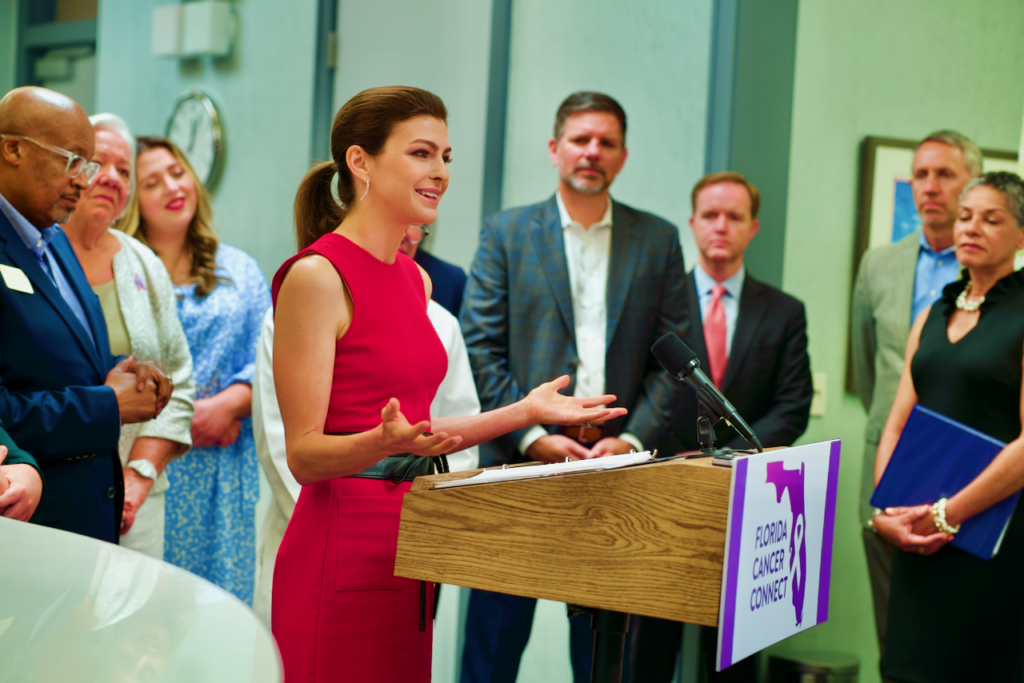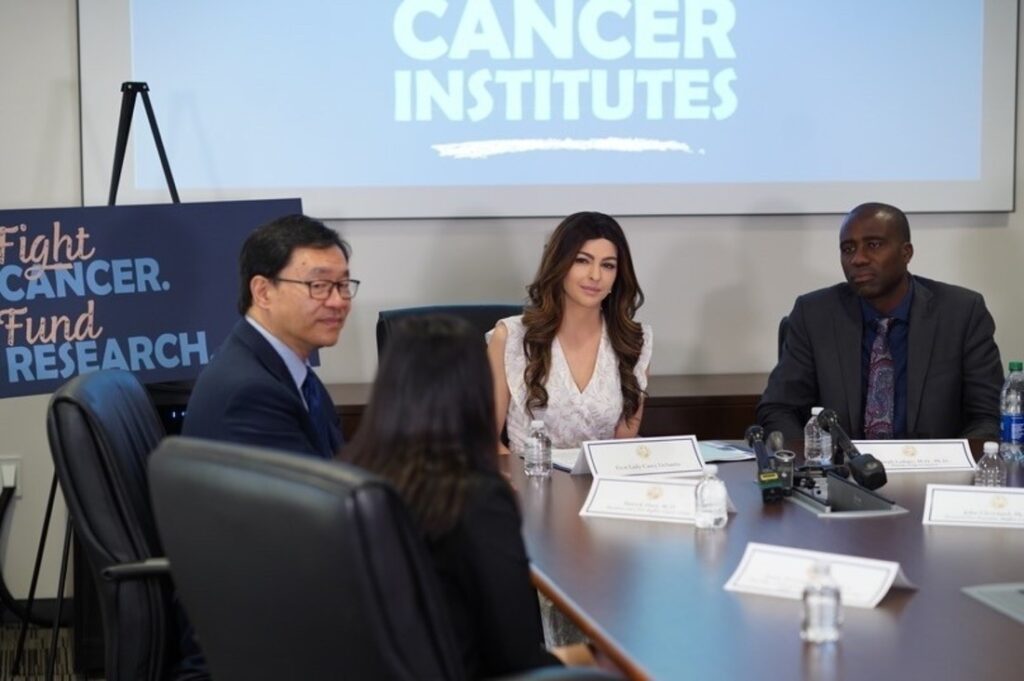Collaborative Releases New Cancer Materials
The Cancer Connect Collaborative’s recommendations for the next steps in cancer innovation include removing barriers to utilizing biometric data, which better allows researchers and physicians to test for genes, proteins and other biomarkers that can guide treatment and create new cancer breakthroughs.
The Florida Cancer Report explores trends in the most common cancers, highlights screening and prevention measures, and details the history of cancer research and care in Florida. Early detection makes cancer easier to treat. The report outlines common symptoms by age, gender and other factors, as well as guidance on self-screening and at-home tests.
The report provides public information about the top five most frequently diagnosed cancers in Florida, which include breast, lung, prostate, colorectal and skin cancers. Since 2017, these top five cancers have accounted for just over half of all cancer diagnoses (50.3%) in Florida.
View the full Florida Cancer Report
Innovative Strategies for Cancer Treatment and Care
Read First Lady Casey DeSantis’ Announcement of the Cancer Connect Collaborative
First Lady Casey DeSantis announced the Cancer Connect Collaborative, an expansion of Florida Cancer Connect that will assemble a team of medical professionals to analyze and rethink Florida’s approach to combatting cancer.
The Cancer Connect Collaborative will break down longstanding silos between researchers, cancer facilities and medical providers to improve cancer research and treatment.
- Florida is home to more than 200,000 cancer patients treated at over 300 world-class health care facilities statewide.
- It currently averages 10 to 12 years from discovery for a cancer treatment or surgery patent that advances cancer care to be shared and adopted into practice.

The Florida Cancer Connect Collaborative’s five main objectives
Data about the proliferation and treatment of cancer should be both timely available and easily accessible. The collaborative will seek to identify the reasons data is slow to move or hard to access and dismantle those barriers.
When it comes to treating cancer, best practices shouldn’t be proprietary. The collaborative will seek to streamline, encourage and incentivize the sharing of treatment best practices among public and private entities so that everyone is treated with the most effective treatment possible.
Cutting the red tape and fully unleash the power of innovation in the battle against cancer. Technology improves at an exponential rate yet application lags. The collaborative will identify the reasons that technology gets held up – whether it be special interests, over-litigiousness, or bureaucratic red tape – and recommend ways to eliminate these barriers.
The Cancer Connect Collaborative will provide recommendations for the implementation of the Governor’s proposed $170 million in funding to improve the pace of cancer research and novel technologies. For record breaking funding, the Florida taxpayer deserves results. The collaborative will deliver.
We know a lot about cancer – what causes it, and in many cases, what preventative steps can minimize the risk of a diagnosis. It’s time to open the tap on cancer information and the collaborative will be tasked with identifying the ways to ensure this is done.
CANCER COLLABORATIVE MEMBERS
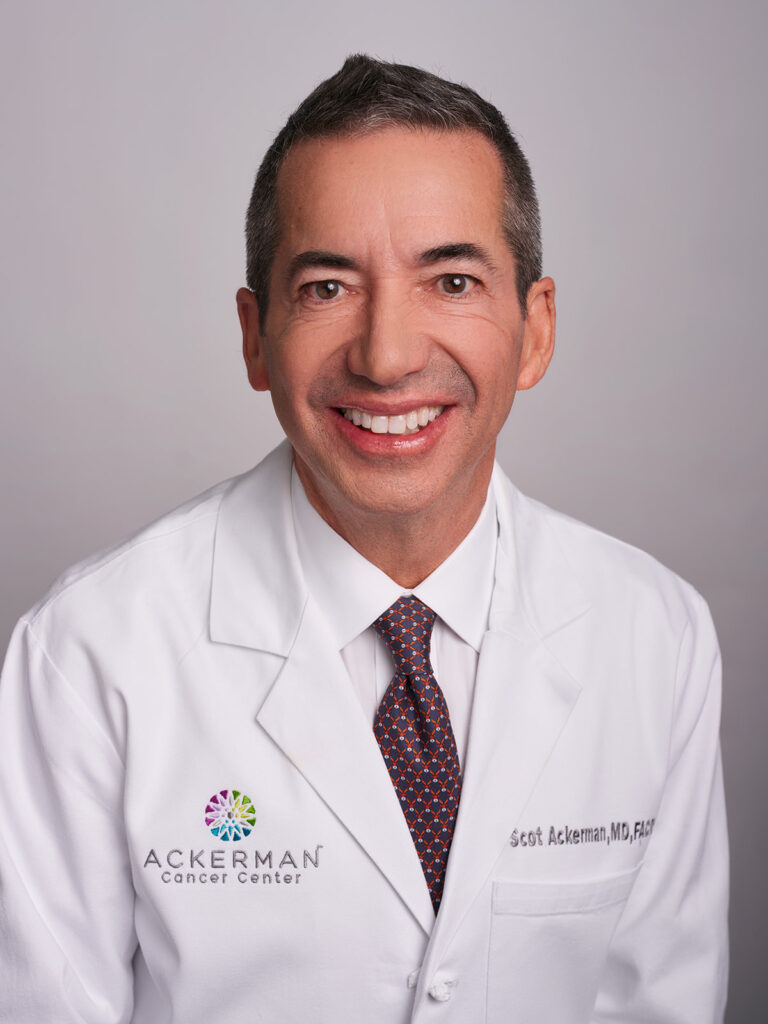
Scot Ackerman, M.D.
Medical Director
Ackerman Cancer Center

Scot Ackerman, M.D.
Medical Director
Ackerman Cancer Center
Scot Ackerman, M.D. is Board Certified in Radiation Oncology and the Medical Director of Ackerman Cancer Center and is a Fellow of the American College of Radiology. After completing his training at Columbia University in New York City, he came to Jacksonville and has been in private practice for more than 35 years, serving as an integral force in Florida’s fight against cancer. He held the position of Chief of Radiation Oncology at St. Vincent’s Medical Center prior to opening Ackerman Cancer Center in 1997. Currently, Dr. Ackerman serves on the Florida Board of Medicine and served as Chair in 2023. He was appointed to the Florida Board of Medicine by Governor Ron Desantis and works alongside the First Lady of Florida, Casey Desantis, on the Florida Cancer Connect Collaborative.
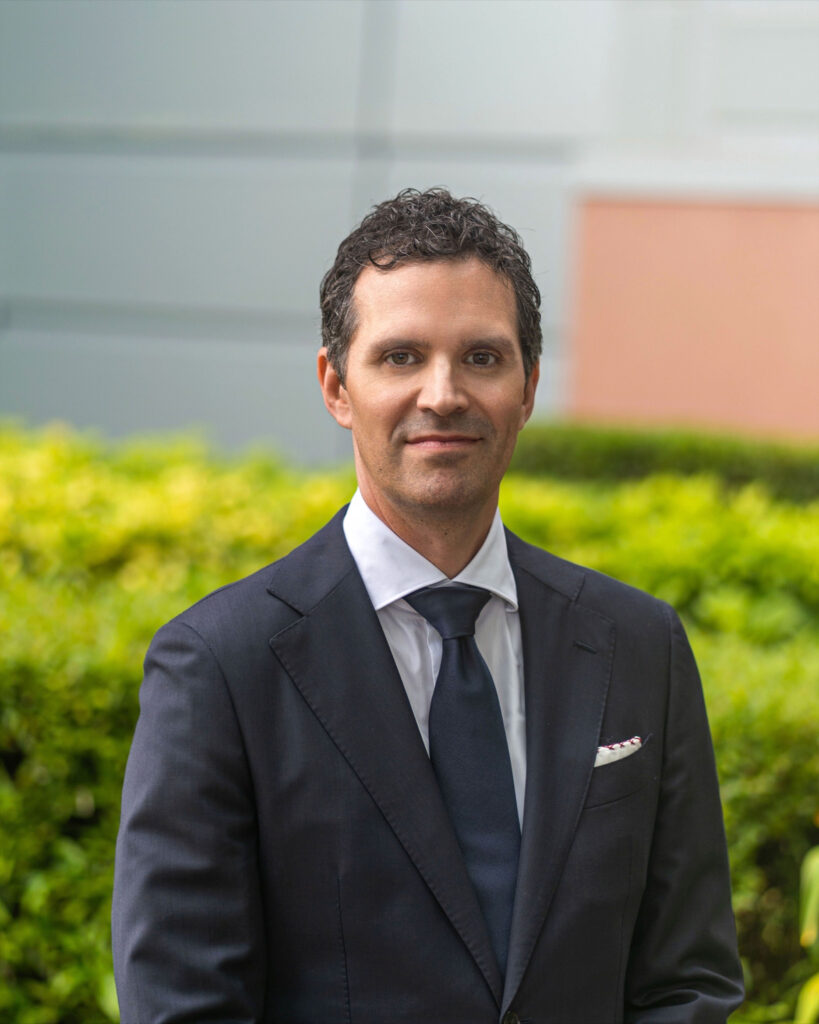
Nicholas J. Panetta, M.D., FACS
Associate Professor of Plastic Surgery and Surgical Oncology Director
USF Cancer Related Lymphedema Program
USF Health Morsani College of Medicine

Nicholas J. Panetta, M.D., FACS
Associate Professor of Plastic Surgery and Surgical Oncology Director
USF Cancer Related Lymphedema Program
USF Health Morsani College of Medicine
Nicholas J. Panetta, M.D., FACS is Chair of the Department of Plastic Surgery at the University of South Florida. He is an Associate Professor in plastic surgery and surgical oncology, and currently serves as Chief of both the Department of Plastic Surgery and Director of the Plastic and Burn Surgery Institute at Tampa General Hospital. While treating the full spectrum of complex reconstructive surgical needs related to cancer treatment, his specific clinical and research interest focuses on the treatment and study of cancer-related lymphedema. From concept to successfully treating hundreds of patients, he has, from the ground-up, developed and implemented a nationally recognized clinical program for the treatment of cancer-related lymphedema, and is Director of the USF Cancer Related Lymphedema Program. His work has explored the efficacy of microsurgical interventions in the prevention of breast cancer-related lymphedema (BCRL), identifying patient populations at greatest risk for BCRL, and the efficacy of an applied multidisciplinary care algorithm aimed at the treatment and prevention of cancer-related lymphedema. Most recently, Dr. Panetta’s clinical efforts have centered on the application of microsurgical robotics to improve the precision and outcomes of patients in need. Here, he aims to validate the clinical utilization of this novel technology, paving the way for broad implementation and significantly increasing patient access.
Dr. Panetta graduated from the Indiana University School of Medicine, and subsequently completed his general surgery training at the University of South Florida Morsani College of Medicine. He completed a plastic surgery research fellowship at Stanford University, where he served as the Hagey Fellow in Pediatric Regenerative Medicine. Following this, he completed his plastic and microvascular surgery fellowships at the University of Pittsburgh Medical Center. He holds board certifications in general surgery and plastic surgery, and he is a member of the American College of Surgeons, the American Society of Plastic Surgery, and the American Society of Reconstructive Microsurgery, the Southeastern Society of Plastic and Reconstructive Surgery, the American Council of Academic Plastic Surgeons, and the American Association of Plastic Surgeons.
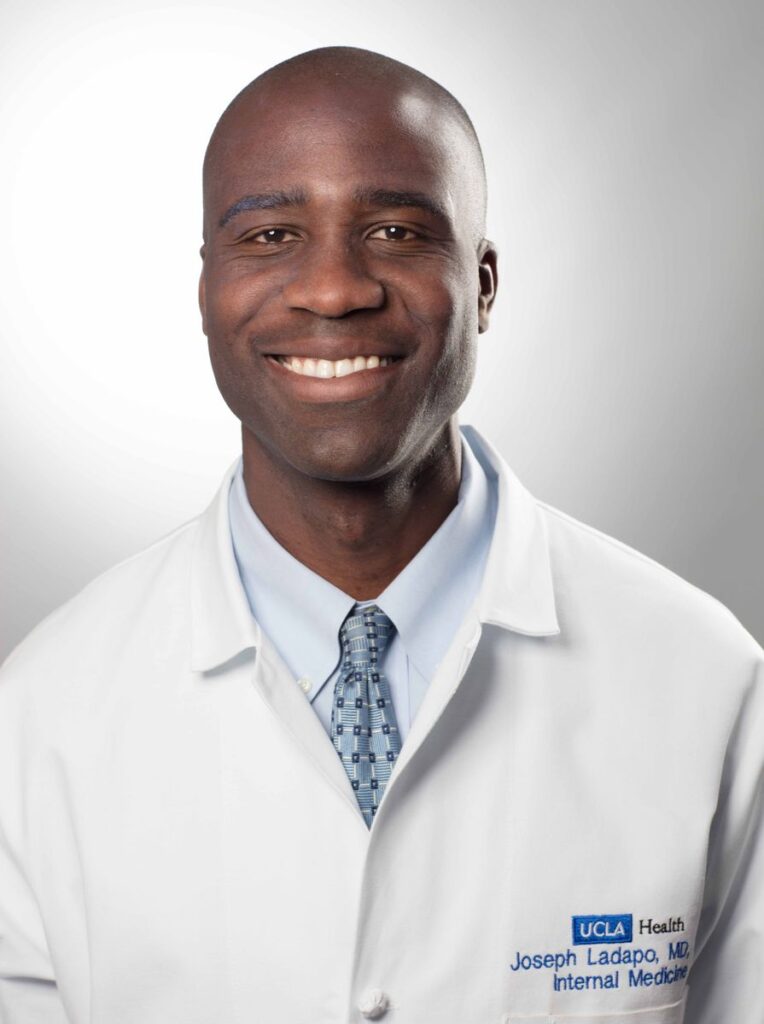
Joseph A. Ladapo, M.D., Ph.D
State Surgeon General of Florida and Professor of Medicine
University of Florida

Joseph A. Ladapo, M.D., Ph.D
State Surgeon General of Florida and Professor of Medicine
University of Florida
Joseph A. Ladapo, M.D., Ph.D. is the State Surgeon General of Florida. He also serves as Professor of Medicine at the University of Florida, where his research examines behavioral economic strategies to reduce cardiovascular risk in low-income and disadvantaged populations. Dr. Ladapo graduated from Wake Forest University and received his medical degree from Harvard and PhD in Health Policy from Harvard Graduate School of Arts and Sciences. He completed his clinical training in internal medicine at the Beth Israel Deaconess Medical Center.
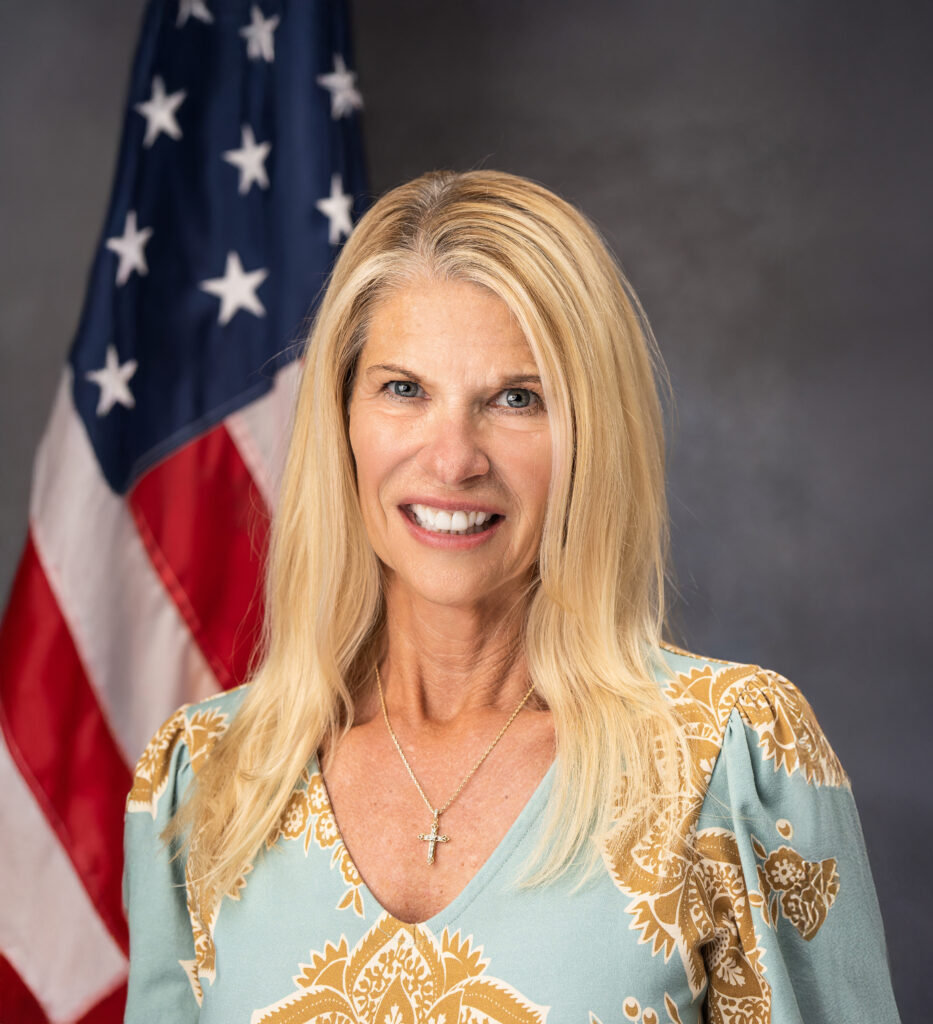
Debbie Mayfield
Florida Senator
Florida Legislature

Debbie Mayfield
Florida Senator
Florida Legislature
Debbie Mayfield serves as the Florida Senator for District 19. She served as the Majority Leader from 2020-2022. She also served in the Florida House of Representatives from 2024 – June 9, 2025, and from 2008-2016, holding the position of Majority Deputy Whip from 2009-2010. A retired banking executive, she graduated from Santa Fe College and the Florida Banking School.

Shevaun Harris
Secretary
Florida Agency for Health Care Administration

Shevaun Harris
Secretary
Florida Agency for Health Care Administration
Shevaun Harris was appointed by Governor Ron DeSantis to serve as the Secretary of the Agency for Health Care Administration (Agency) in February 2025. Previously, Secretary Harris worked at the Agency from 2005-2021 where she focused on the administration of the Florida Medicaid program, implementing sound policy and quality improvement efforts for millions of Floridians, and serving as lead negotiator for the multi-billion dollar procurement of the Statewide Medicaid Managed Care program.
Prior to returning to the Agency in 2025, she served more than four years as the Secretary of the Department of Children and Families (DCF). Through implementation of key initiatives that promote prevention and resiliency, Florida experienced a decrease in opioid and suicide deaths; improvements in child welfare prevention efforts resulting in fewer youth in foster care and increases in adoptions; and expanded service options for those contending with substance use and mental health disorders.
Secretary Harris is a champion for children and families, and her leadership is marked by a belief in accountability-driven systems, innovation, and continuous quality improvement.
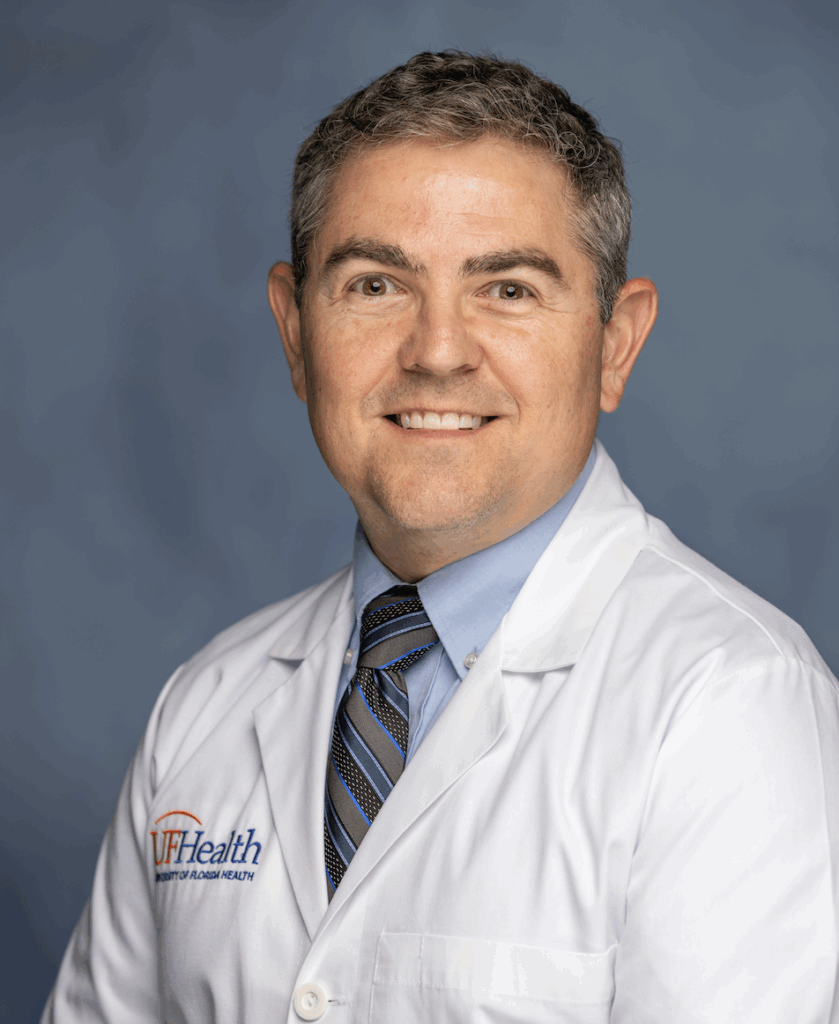
Thomas George, MD, FACP, FASCO
Deputy Director
University of Florida Health Cancer Center

Thomas George, MD, FACP, FASCO
Deputy Director
University of Florida Health Cancer Center
Dr. Thomas George is a practicing medical oncologist and Deputy Director of the UF Health Cancer Center, where he oversees programmatic clinical, research, education, and outreach activities aimed at improving cancer outcomes across the state and reducing the burden of cancer on patients and their families. As Director of the GI Oncology Program, he leads a multidisciplinary team of physicians, nurses, navigators, pharmacists, researchers, and supportive care staff dedicated to delivering comprehensive, high-quality care for patients with gastrointestinal malignancies. An active clinical trialist, Dr. George has led or developed more than 50 trials testing novel therapies, diagnostic tools, and precision oncology approaches.
He serves on external advisory boards and as a consultant to nearly a dozen cancer centers nationwide, and he is a leader in several national clinical trial networks and organizations. A committed educator, he actively mentors students, oncologists-in-training, and researchers both within Florida and across the country, earning multiple teaching and mentorship awards. He also served for a decade as a gubernatorial appointee and Chair of the Florida Cancer Control and Research Advisory Council, guiding state-level priorities for prevention, care, and research. He currently serves on the Board of Directors for the Florida Chapter of ASCO and has been recognized as an ASCO Advocacy Champion in six of the last seven years.
Born and raised in Florida, Dr. George is proud to be a triple Gator, having completed his undergraduate, medical school, and specialty training at the University of Florida, where he now serves as a Professor of Medicine. He is board certified in Medical Oncology and is a member of Alpha Omega Alpha, the American Association of Cancer Research, and is a fellow of both the American College of Physicians and the American Society of Clinical Oncology. Last but not least, he is a husband to Sarah and father to Emma, Josh, and Jason.
First Lady Casey DeSantis launches innovative approach to fight against cancer
Collaborative News Releases

